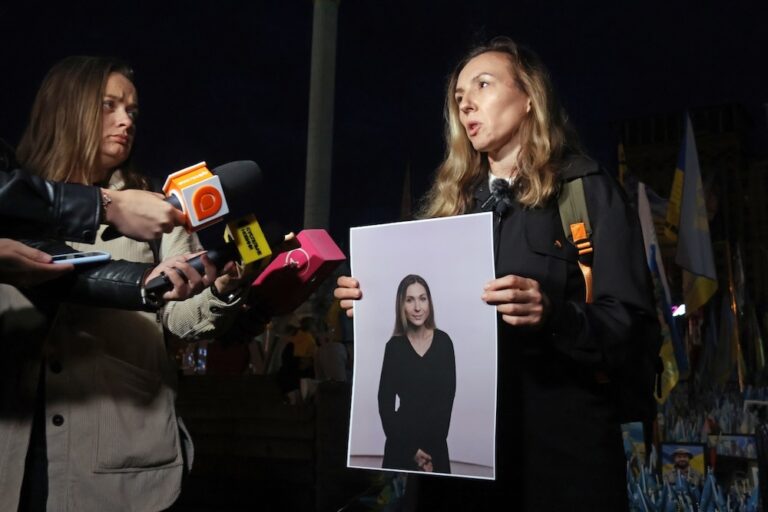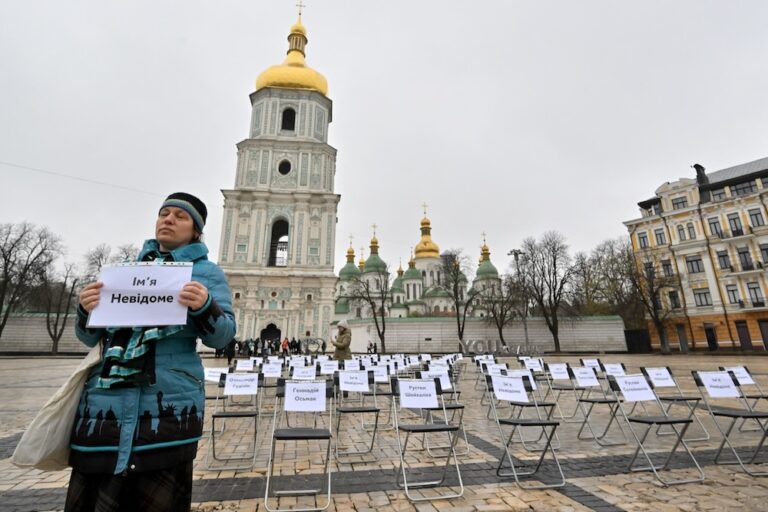(RSF/IFEX) – On 18 November 2003, Parliament gave first reading to a draft law on computer domain use. The text, which leaves wide scope for interpretation, gives the authorities new judicial means to censor online publications. It follows other measures undertaken by the Ukrainian authorities to establish their control of the Internet. RSF has called […]
(RSF/IFEX) – On 18 November 2003, Parliament gave first reading to a draft law on computer domain use. The text, which leaves wide scope for interpretation, gives the authorities new judicial means to censor online publications. It follows other measures undertaken by the Ukrainian authorities to establish their control of the Internet.
RSF has called on Prime Minister Yanukovych to hold discussions with Internet and freedom of expression organisations. “Parliament is adopting laws which are too ambiguous to guarantee freedom of expression on the Internet,” said RSF Secretary-General Robert Ménard. “The draft law in this field should include safeguards against abusive censorship by the government. We believe this type of law should be worked out in discussion with representatives of civil society in order to ensure that the state does not trample on individual freedoms,” he added.
Among the provisions of the draft law is one banning publication of documents that are considered to “damage the constitutional order”, “contain libellous information about persons” or are “aimed at promoting terrorism”. The bill was adopted in first reading by 260 votes out of 335.
Serhiy Morhun, editor-in-chief of online magazine “UA-today”, said he did not think the magazine could continue operating once the new law comes into effect. He fears it will force many of the major Internet media outlets to relocate abroad.
Ukrainian intelligence services had pushed the government into introducing a draft law to Parliament on 19 August that aimed to legalise the registering and interception of Internet and telephone telecommunications. Officially, this draft law was intended to introduce telecommunications surveillance in order to fight crime in conformity with European standards.
A further debate has also been launched on the management of the Internet in Ukraine. The Hostmaster Ltd company took the Ukrainian government to court on 22 July in an effort to halt the transfer of management of “.ua” domain names to the Information Centre on Ukrainian Cyberspace, a body in which the secret services have a role. The court dismissed the case in mid-November. Hostmaster Ltd has decided to appeal the ruling.


